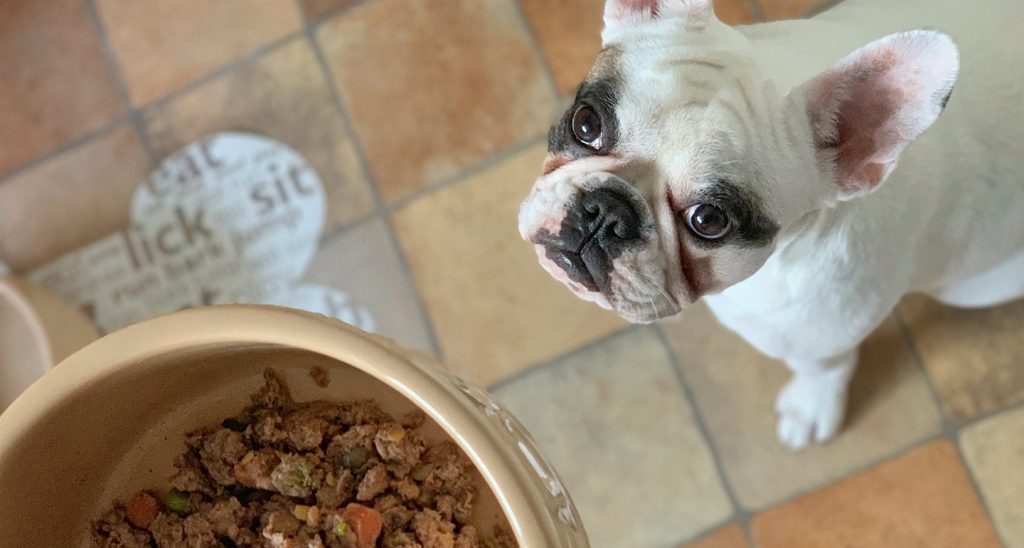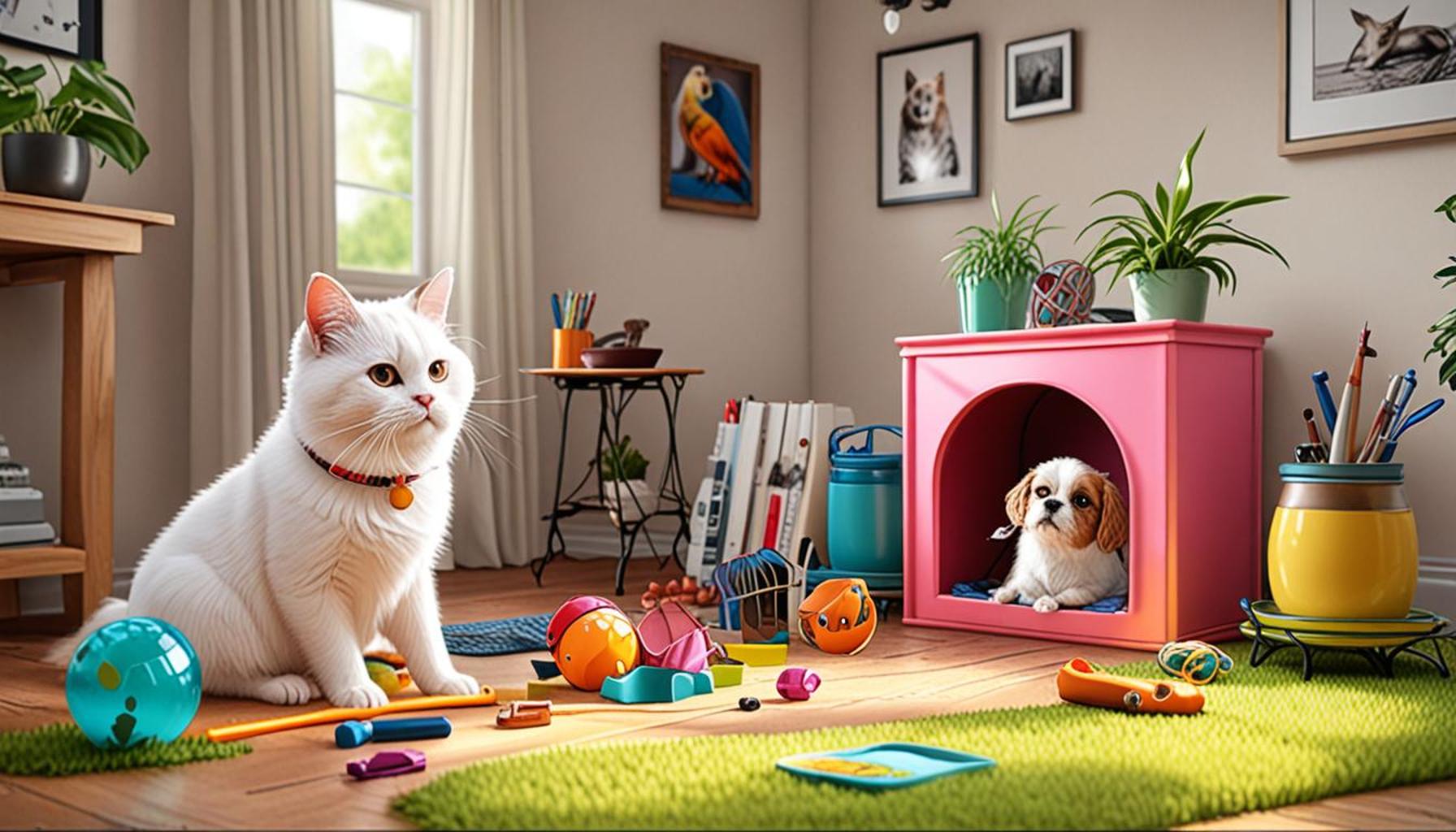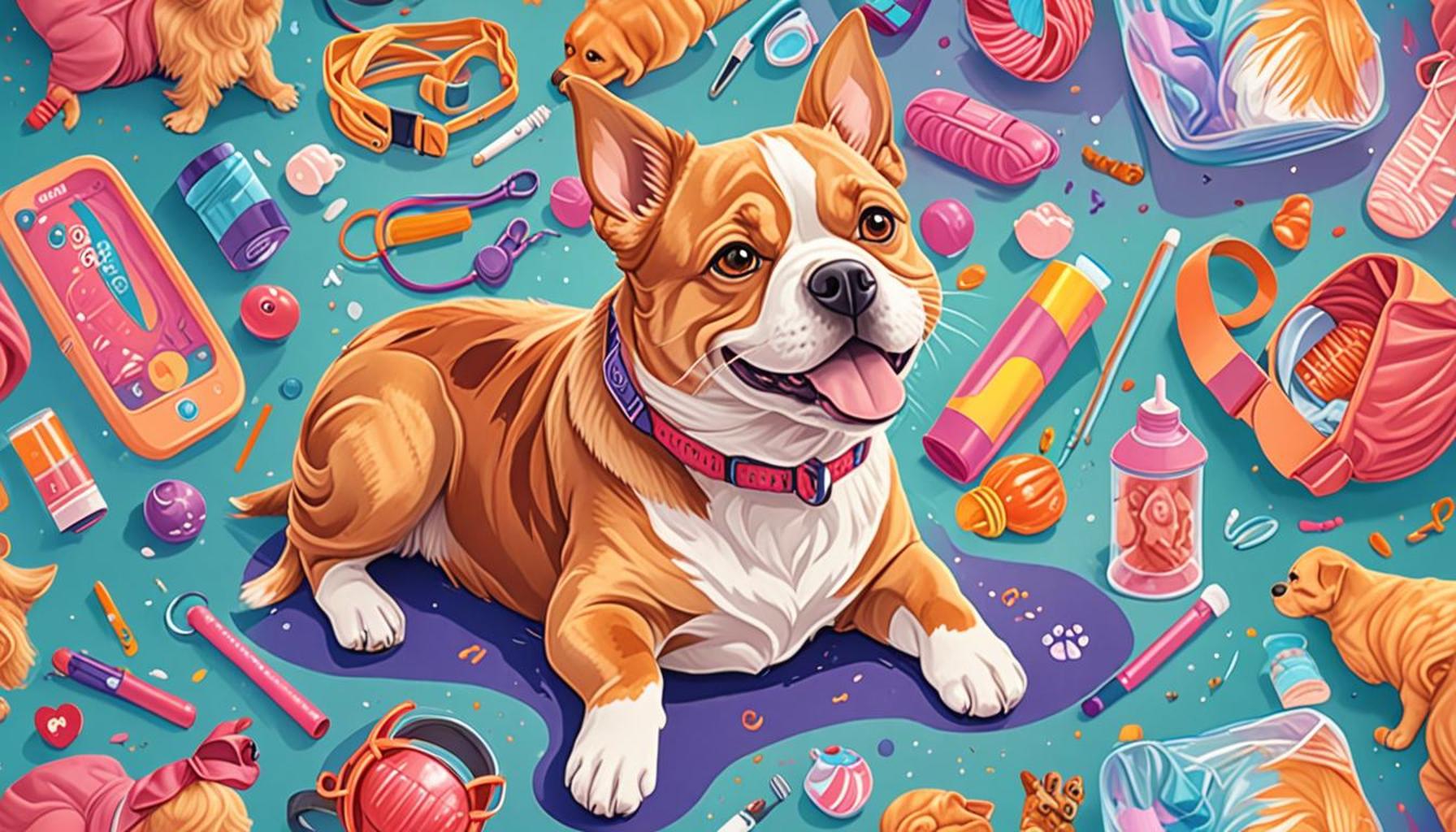Care Tips for Senior Pets: Ensuring Quality of Life in Old Age

Understanding the Needs of Aging Pets
As pets age, they undergo various physical and emotional changes that require special attention and care. Senior pets can face challenges such as mobility issues, cognitive decline, and an increase in health complications, making it essential for pet owners to adapt their care routines accordingly.
Among the common issues affecting senior pets is arthritis, which can lead to decreased mobility and pain. According to the American Veterinary Medical Association, approximately 20% of dogs and 90% of cats over the age of 10 experience some form of arthritis. To counteract this, owners must be observant of their pets’ activity levels and behaviors, ensuring they provide supportive pet furniture, such as ramps or orthopedic beds, to help their companions navigate their environment comfortably.
Another significant concern is cognitive dysfunction syndrome (CDS), similar to Alzheimer’s in humans. This condition may manifest as disorientation, disrupted sleep patterns, or changes in social interactions. Owners can combat these cognitive declines by engaging their pets in mental stimulation, such as puzzle toys or interactive games, which can be enjoyable and beneficial for maintaining mental agility.
Maintaining a high quality of life involves several crucial interventions:
- Regular veterinary check-ups: Frequent health assessments can catch issues early, offering interventions before they worsen. For instance, annual check-ups can include blood tests to monitor organ function.
- Dietary adjustments: Nutritious, age-appropriate food can support their specific health needs. For example, look for formulations that are lower in calories but rich in essential nutrients to prevent obesity and promote a healthy weight.
- Comfortable living spaces: Providing a cozy and accessible environment aids in their comfort and mobility. Senior pets may benefit from cushioned areas that are low to the ground to minimize the risk of injury.
Understanding the unique requirements of senior pets not only enhances their well-being but also fosters deeper connections between pets and their owners. By ensuring they have a robust support system and thoughtful care in their later years, pet owners can significantly improve the overall quality of life for their furry companions.

This article will delve deeper into practical care tips that can empower pet owners to give their elderly pets the love and support they deserve, helping them thrive in their golden years filled with affection, comfort, and joy. The journey of caring for senior pets is rich with both challenges and rewards, presenting an opportunity to create cherished memories and strengthen the bonds of companionship.
LEARN MORE: Click here to discover the impact of socialization on your pet’s emotional well-being
Practical Care Tips for Senior Pets
Ensuring a high quality of life for senior pets involves proactive and thoughtful care practices tailored to their aged bodies and minds. Pet owners can take various measures to meet the specific needs of their aging companions, thereby promoting their well-being in significant ways.
Regular Exercise and Physical Activity
While senior pets may not have the same energy levels as their younger counterparts, maintaining a consistent exercise routine remains crucial. Regular, low-impact activity can aid in managing weight, enhancing joint health, and fostering mental engagement. It’s important to tailor exercise routines based on their individual abilities. Consider activities such as:
- Gentle walks: Short, leisurely walks can provide essential physical activity without overexertion.
- Swimming: This low-impact exercise is ideal for improving muscle strength and range of motion while being easy on the joints.
- Interactive play: Simple games that don’t require excessive jumping or running can stimulate both the mind and body—think of light tug-of-war or fetch with soft toys.
Creating a Balanced Diet
Nutrition plays a pivotal role in the overall health of senior pets. Age-appropriate diets should focus on quality ingredients that provide essential nutrients while being easy to digest. It’s beneficial to consult with a veterinarian to identify the right food that caters to specific health issues, such as:
- Weight management: Formulations designed for senior pets often have fewer calories and higher fiber to prevent obesity.
- Joint health: Foods enriched with Omega-3 fatty acids, glucosamine, and chondroitin can help improve joint function and reduce inflammation.
- Digestive support: Probiotic-rich diets can enhance gut health, ensuring better nutrient absorption and overall gastrointestinal comfort.
Understanding Behavioral Changes
As pets age, they may exhibit changes in behavior that signal declining health or discomfort. It’s important for owners to be vigilant and responsive to these shifts. Signs of distress may include increased irritability, changes in eating habits, or withdrawal from previously enjoyed activities. Pet owners should monitor these behaviors as they can indicate underlying health issues that may need veterinary attention.
Furthermore, providing a predictable routine can help ease anxiety in senior pets, as familiarity with daily activities can be comforting for them. Enriching their environment with safe toys and sensory experiences can also positively influence their mood and overall happiness.
By implementing these practical care tips, pet owners can create a supportive atmosphere for their senior furry friends. Understanding their changing needs helps to ensure that their golden years remain filled with love, comfort, and joy. In the forthcoming sections, we will explore more specialized health management tips, including veterinary care and addressing specific conditions prevalent among senior pets.
| Category | Description |
|---|---|
| Nutrition | Providing a balanced diet tailored for seniors can significantly improve pets’ overall health. |
| Exercise | Regular, gentle exercise helps maintain mobility and mental stimulation for senior pets. |
| Health Monitoring | Frequent vet visits for health checks prevent and catch age-related illnesses early. |
| Comfort | Creating a comfortable living environment enhances the quality of life and reduces stress. |
As pets age, their needs change significantly, and understanding how to adapt is crucial for their well-being. The right nutrition is a foundational element; senior-specific diets can enhance digestion and manage weight. Coupling this with appropriate exercise is key—not only does it encourage physical health, but light activity also stimulates their minds.Furthermore, health monitoring becomes increasingly important. Regular check-ups help catch potential issues before they escalate, ensuring that seniors remain happy and active for as long as possible. Lastly, focusing on comfort—like soft bedding and accessibility—can make a world of difference. Together, these elements create a supportive environment for senior pets, enhancing their quality of life in their golden years.
DISCOVER MORE: Click here to learn about giving a second chance
Health Monitoring and Veterinary Care
As pets age, their health needs inevitably change, making it increasingly important for owners to prioritize regular health monitoring and veterinary care. Scheduling routine veterinary check-ups at least twice a year allows for early detection of potential health issues that become more prevalent in senior animals. Common conditions to watch for include:
- Arthritis: A significant number of senior pets suffer from joint pain due to arthritis. Regular vet visits can help manage this condition with appropriate medications and treatments to improve mobility.
- Dental disease: Dental problems are common in older pets and can lead to pain or systemic health issues if left untreated. Regular dental cleanings and at-home oral care can prevent these problems.
- Kidney and liver function: Routine blood work can monitor organ function, allowing for early intervention if any abnormalities arise.
By keeping open communication with veterinarians and actively participating in health discussions, pet owners can tailor health regimes that align with the specific needs of each senior pet.
Grooming Needs and Personal Care
The physical aspects of care should not be neglected as pets grow older. Regular grooming is crucial, not only for aesthetic reasons but also for maintaining comfort and hygiene:
- Coat care: Senior pets can develop skin problems or thinning fur, making regular brushing essential. This practice helps remove dead hair and stimulates the skin, promoting circulation.
- Ear cleaning: Older pets often face issues with ear infections or wax buildup. Cleaning ears gently and routinely ensures that they remain healthy and free from obstructions.
- Nail trimming: Long nails can become painful for older pets, adversely affecting their mobility. Regular nail trimming should be part of any senior pet’s grooming routine.
By being attentive to grooming needs, pet owners contribute not only to their pet’s physical comfort but also their psychological well-being by promoting a sense of care and routine.
Environmental Modifications for Comfort
Creating a safe and comfortable living environment is essential for senior pets. As their mobility decreases, implementing modifications can greatly enhance their quality of life:
- Orthopedic bedding: Investing in supportive, orthopedic beds helps alleviate pressure points and provides added comfort for aging joints.
- Accessible spaces: Ensure that all necessary areas, such as food, water, and litter boxes, are easily accessible, especially for pets suffering from mobility issues.
- Non-slip surfaces: Adding non-slip mats or rugs to slippery floors can prevent falls and give pets more confidence when moving around the house.
These simple adjustments can make a significant difference in how senior pets navigate their environment, promoting safety and independence.
In conjunction with these care considerations, pet owners should also focus on mental stimulation and engagement, helping to keep their senior companions active and content in their later years. Engaging in brain games, puzzle toys, or even light training sessions can keep older pets mentally sharp and emotionally fulfilled.
Understanding the combined influence of physical and environmental factors allows for a more holistic approach to senior pet care, ensuring that they lead fulfilling, healthier lives in their advanced years.
DON’T MISS OUT: Click here to learn why adopting elderly animals matters
Conclusion
Caring for senior pets requires a shift in perspective focused on enhancing their overall quality of life as they age. By emphasizing tailored health monitoring and consistent veterinary care, owners can proactively address health concerns unique to older animals. From managing arthritis to preventing dental disease, early detection is key to maintaining your pet’s comfort and vitality.
Additionally, grooming becomes increasingly vital as pets age. Regular care not only supports their physical health but also reinforces the emotional bond between pets and their owners. Simple activities like brushing, ear cleaning, and nail trimming can significantly improve the well-being of your furry companions.
Creating a supportive environment through modifications tailored to their mobility limitations enhances comfort, safety, and independence. Features such as orthopedic beds and non-slip surfaces are more than just conveniences; they are essential components in promoting your pet’s quality of life.
Finally, never underestimate the power of mental stimulation. Engaging your senior pet through puzzle toys or gentle activities can keep their minds sharp and spirits high. Understanding the comprehensive needs of senior pets and actively addressing both their physical and emotional concerns can lead to more fulfilling, healthier lives as they enter their golden years. Embrace this journey with compassion and dedication, for it is not just about adding years to their life, but about adding life to their years.


